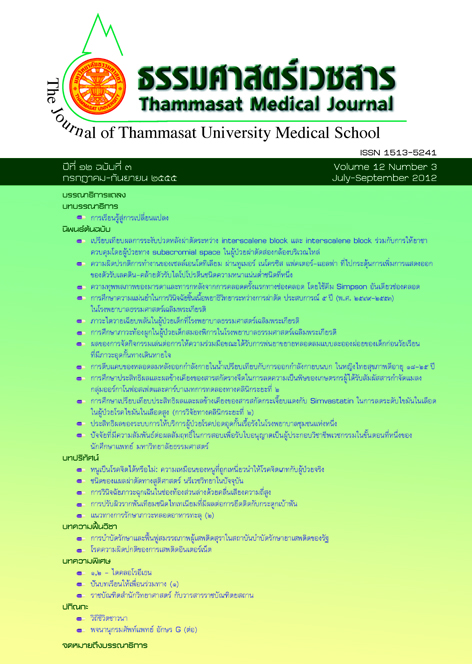Endothelial Dysfunction through Tumor Necrosis Factor-α Activated Lectin-like Oxidized Low-density Lipoprotein Receptor-1 Overexpression
Keywords:
Endothelial dysfunction, Tumor necrosis factor-α (TNF-α), Lectin-like oxidized low density lipoprotein receptor-1 (LOX-1)Abstract
Atherosclerosis is an infl ammatory disease that cytokines such as tumor necrosis factor-α (TNF-) plays a critical role in acute phase response and is expressed in the intima of lesion. The activation of TNF-
in endothelial dysfunction leading to an initial step of atherosclerosis is obscure. In this study, we hypothesized that endothelial dysfunction was triggered by an excess of reactive oxygen species (ROS) through TNF-
induced lectin-like oxidized low density lipoprotein receptor-1 (LOX-1) overexpression. Human umbilical artery culture was used as organ model and also, was treated with 40 ng/ml TNF-
for 2, 4, 8, 16 and 24 hrs. Endothelial function was monitored by real time nitric oxide measurement using electrochemistry technique. LOX-1 expression was analyzed by RT-PCR. Superoxide dismutase (SOD) activity was assayed by SOD determination kit. The results shown that vascular nitric oxide levels were decreased signifi cantly throughout 2-24 hrs experiment. Whereas, inducible mRNA LOX-1 was increased signifi cantly after treated with 40 ng/ml TNF-
at 16 and 24 hrs which corresponding with profound declined NO levels. Consistent high SOD activity was evident which indicated the available superoxide anion (O2.-) in vasculature from, eventually, peroxynitrite formation. These findings suggested that TNF-
activated ROS production that in turn, induced up-regulation of LOX-1 expression and also reduced NO levels leading to endothelial dysfunction.In conclusiond, overwhelmed ROS caused by TNF-
stimulation led to endothelial dysfunction through overexpression of LOX-1. Endothelial damage was from both an excess ROS and, probably, reactive nitrogen species (RNS), peroxynitrite.
Key Words: Endothelial dysfunction, Tumor necrosis factor- (TNF-
), Lectin-like oxidized low density lipoproteinreceptor-1 (LOX-1)



